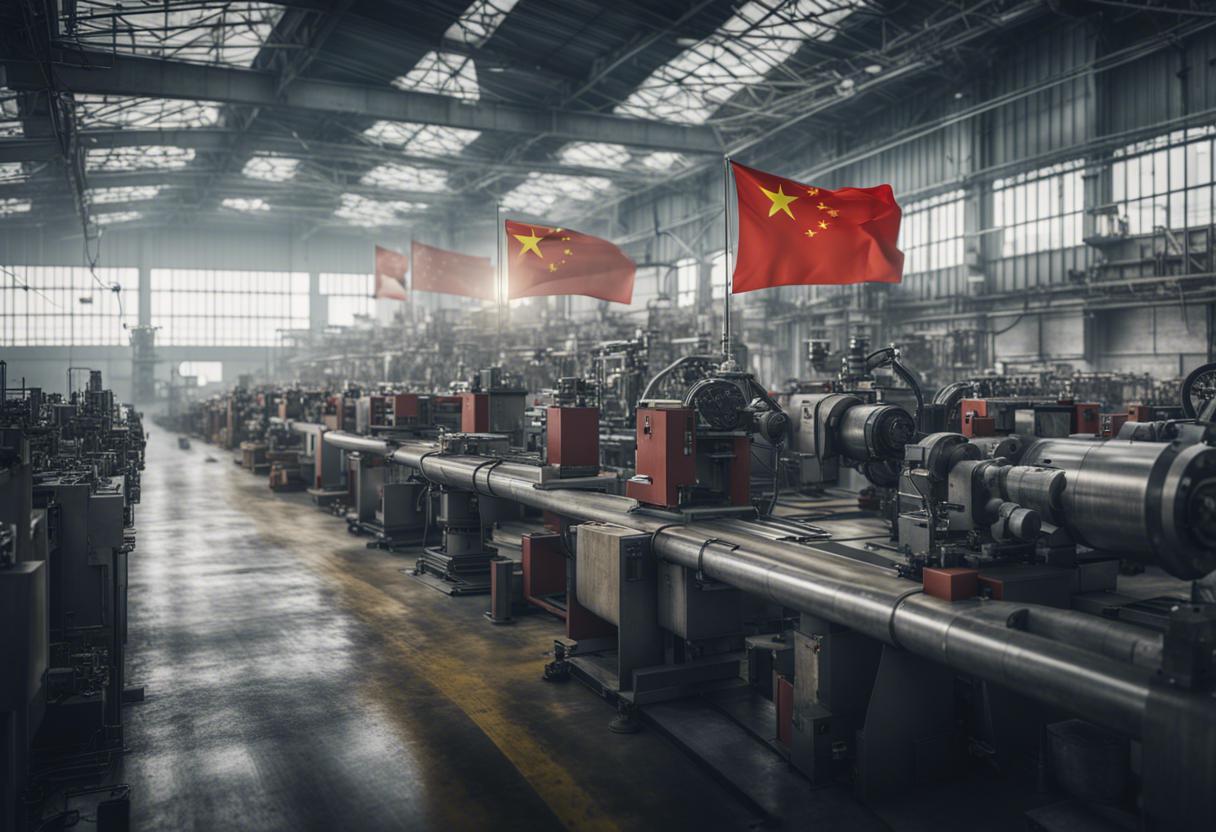China’s manufacturing sector has seen a downturn for the third consecutive month in July, leading to further reassurances from the government that steps will be taken to boost the economy. The decline was confirmed by the National Bureau of Statistics (NBS) which indicated that the official Purchasing Managers’ Index (PMI) fell slightly from 49.5 in June to 49.4. The PMI signifies growth when over 50 and a contraction when below, with China’s PMI being below 50 for all bar three months since April 2023.
There was also a decrease in construction and service activity, as indicated by a separate tally, indexing at 50.3, which shows a slowing expansion rate since June. China’s economic growth in this year’s second quarter was less than anticipated, as a result of reducing retail sales and falling product prices. While the government set a 5% GDP growth goal for 2024, the economy managed a 4.7% annualised increase during this year’s second quarter.
The Communist Party’s 24-member politburo, headed by Xi Jinping, issued a call for accelerating measures to spur domestic demand on Tuesday. Among these measures were subsidies for customers and companies to swap household appliances and industrial equipment, as well as government bonds to alleviate local authorities’ debt burden. The politburo asserted that economic strategies should increasingly revolve around benefiting individuals and increasing consumption.
The unexpected unveiling of interest rate reductions was made last week, but despite numerous rate cuts and easing borrowing regulations, the three-year decrease in the property market’s performance, a previous key growth driver, has not been arrested. Housing prices have experienced their fastest decline in nine years and this ongoing decrease has hurt consumer morale. Prior to the economic downturn, the property sector represented a considerable portion of the country’s GDP and national fiscal revenue.
In contrast to stagnant domestic demand, the country’s exports have remained robust, despite the looming threat of escalated tariffs from the US and EU. However, Beijing faces pressure from significant trade partners, who are concerned that low domestic demand could result in an oversupply of discounted exports ranging from electric cars to green energy technology.
In mid-July, the Communist Party hosted its triennial third plenum, an event which resulted in over 300 strategies for reshaping the Chinese economy. However, the attention was centred more on fostering growth within the high-tech sector in the intermediate and distant future, rather than concentrating on temporary strategies to invigorate the economy.

